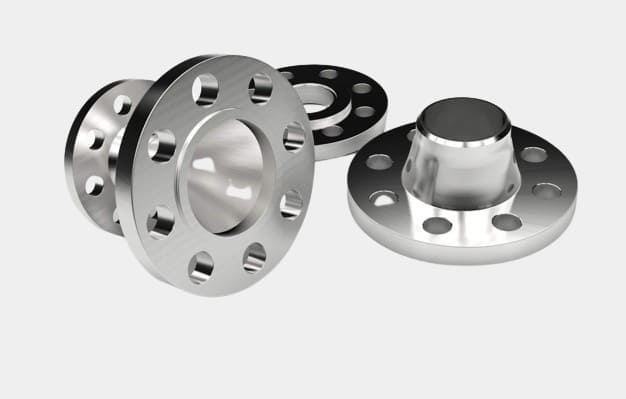Flanges & Flanged Fittings
- Home
- Our Products
- Industrial Supplies
- Flanges & Flanged Fittings

Description
Flanges and flanged fittings are critical components in piping systems, used to connect pipes, valves, pumps, and other equipment securely and reliably. Flanges are flat, circular discs with holes around the perimeter that are bolted together to create a tight seal, allowing for easy assembly and disassembly of piping connections. They come in various types, including slip-on, weld neck, blind, and threaded, each designed for specific applications and pressure requirements. Flanged fittings, which include elbows, tees, and reducers, are used to change the direction or size of the pipe while maintaining a strong, leak-proof connection. These components are made from durable materials such as steel, stainless steel, and plastic, selected based on factors like pressure, temperature, and corrosion resistance. Proper installation and alignment are crucial to ensure the integrity and performance of flanged connections. Regular inspection and maintenance, including checking for leaks and corrosion, are essential to ensure the long-term reliability of the piping system. Flanges and flanged fittings are indispensable in a wide range of industries, including oil and gas, chemical processing, and water treatment, providing a versatile and secure method for connecting and managing piping systems.
Industry Used
FAQ
Flanges and flanged fittings are used to connect pipes, valves, pumps, and other equipment in various piping systems. They provide a strong, leak-proof seal and allow for easy maintenance and disassembly.
Common types of flanges include weld neck, slip-on, blind, threaded, and lap joint flanges. Each type is designed for specific applications and provides different connection methods.
Consider factors such as the pipe material, pressure rating, temperature conditions, and the type of connection required. Matching the flange type to the specific requirements of your piping system is crucial for a secure and effective connection.
Flanges can be made from various materials including carbon steel, stainless steel, alloy steel, and plastic. The choice of material depends on factors such as the operating environment, pressure, and chemical compatibility.
Flanged fittings are installed by aligning the flange faces, inserting bolts through the bolt holes, and tightening them to create a secure and leak-proof seal. Proper torque specifications should be followed to ensure a tight connection.
A welded flange is attached to the pipe by welding, providing a strong and permanent connection. A threaded flange is connected by threading onto a pipe, which allows for easier disassembly but may be less suitable for high-pressure applications.
Regularly inspect flanges for signs of corrosion, damage, or leakage. Ensure bolts are properly tightened and replace any worn or damaged components. Maintenance should be performed according to the manufacturer’s recommendations and industry standards.
Common standards include ANSI/ASME, DIN, and ISO. These standards specify dimensions, pressure ratings, and materials for flanges to ensure compatibility and reliability in various applications.
Yes, flanges can be customized to meet specific requirements, such as unique dimensions, materials, or pressure ratings. Contact our team for assistance with custom flange solutions.
If you encounter problems such as leaks or misalignment, inspect the connections for proper installation, tightness, and damage. If issues persist, consult with our service team for expert advice and solutions.

